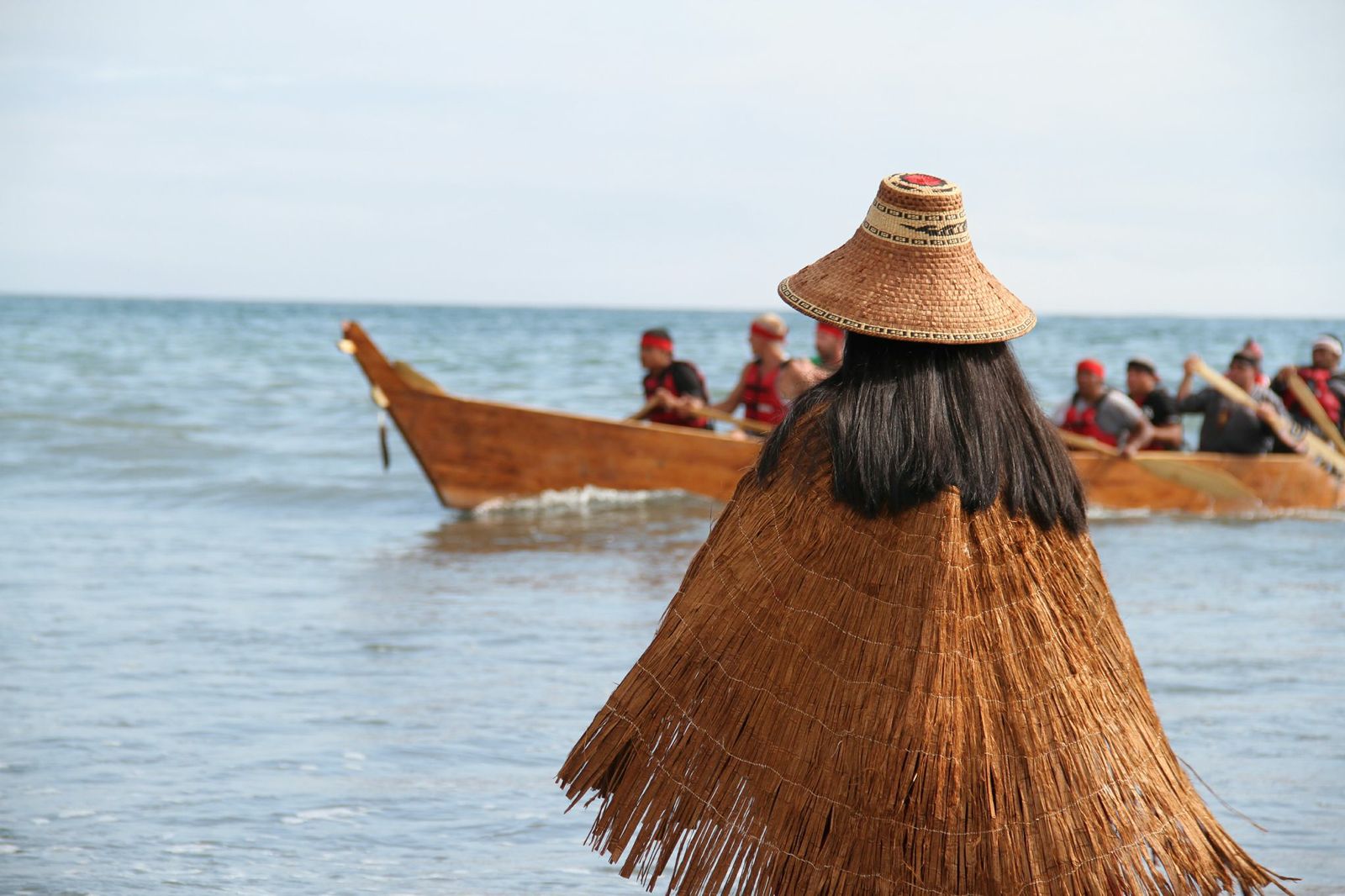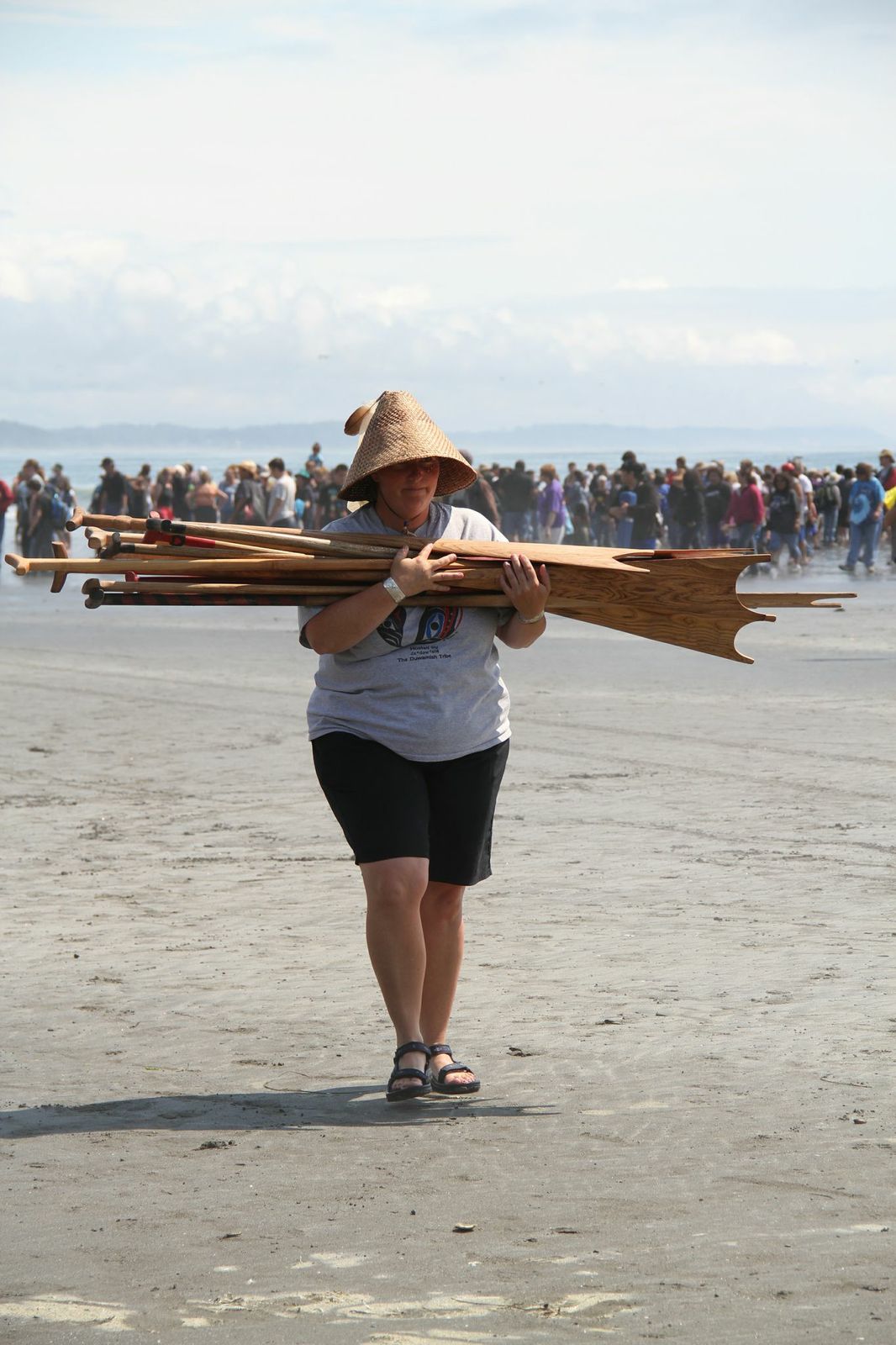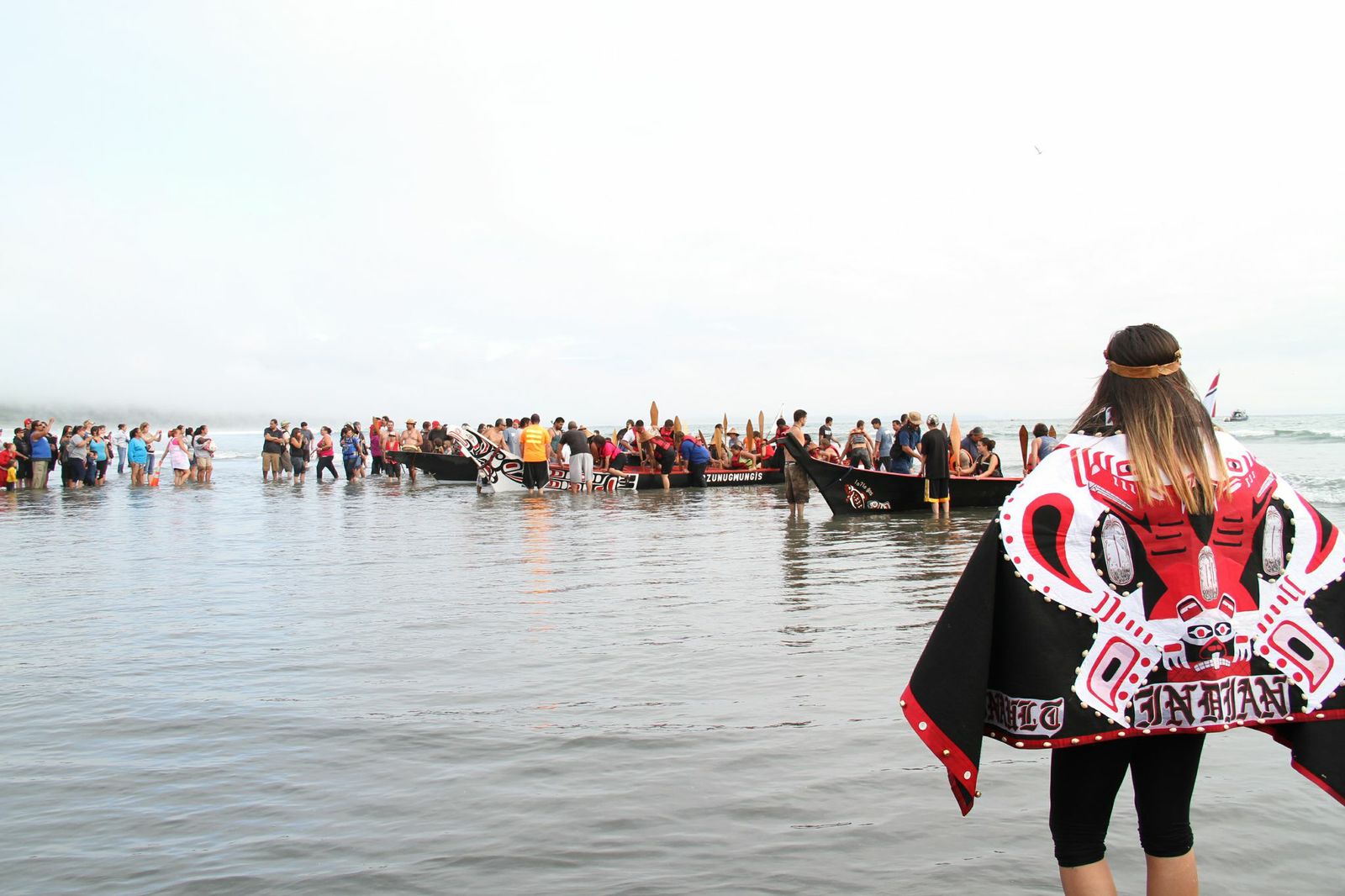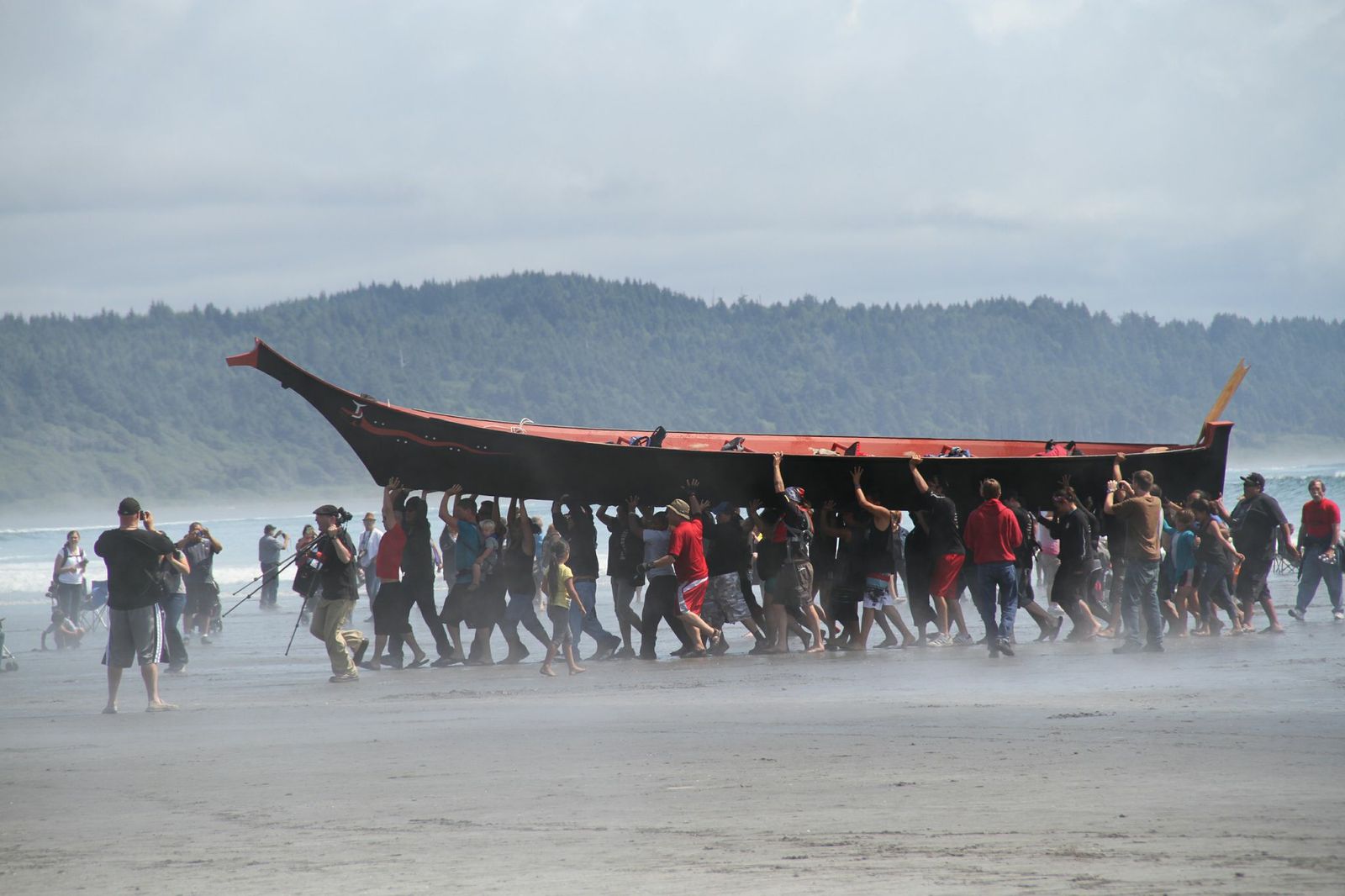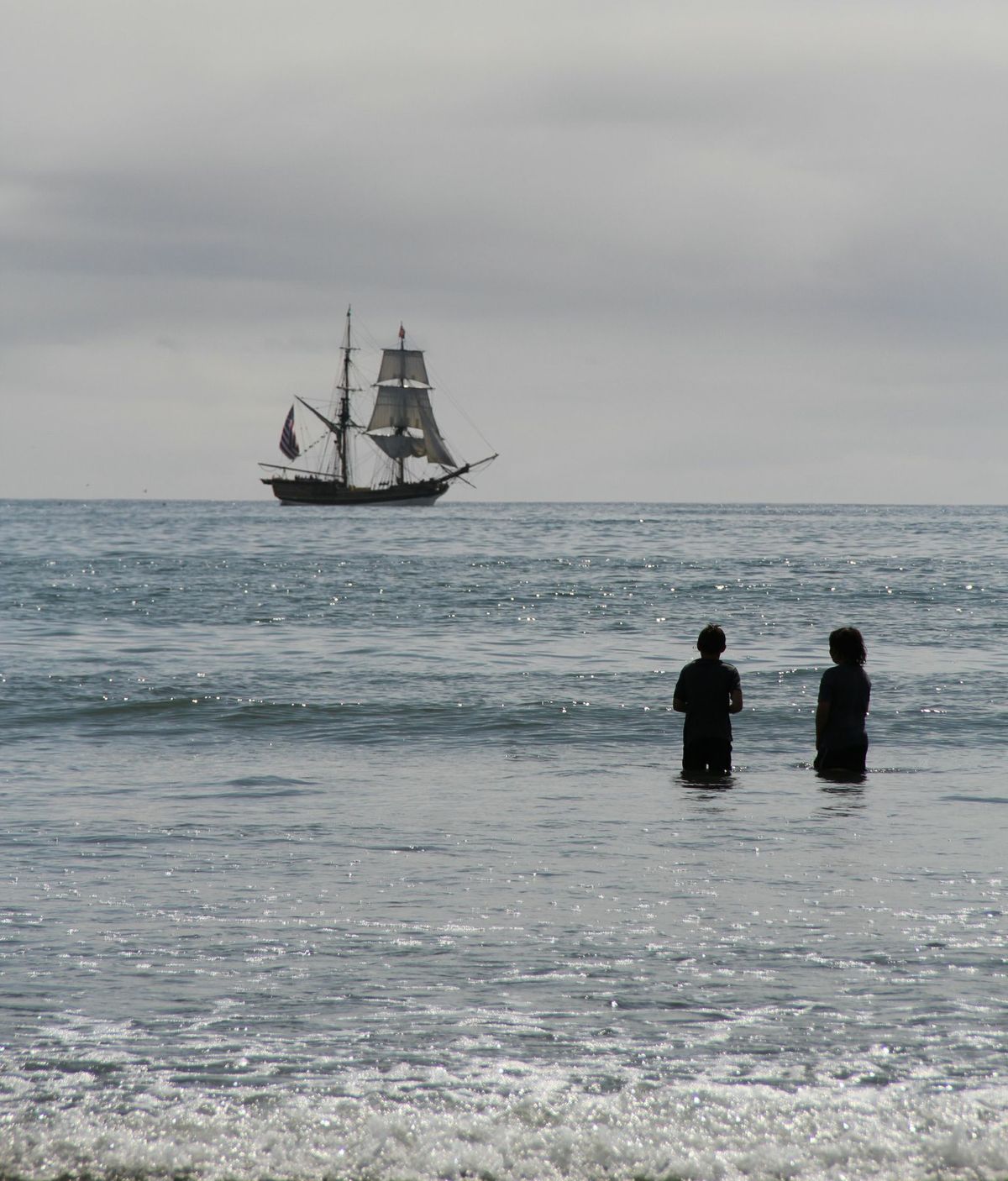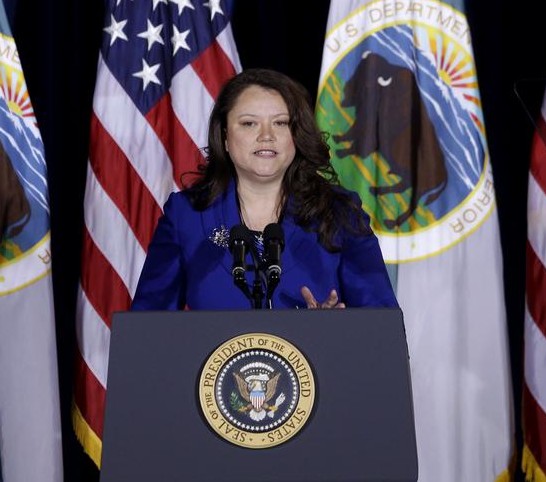Richard Walker, Indian Country Today Media Network
Emmett Oliver watched from his daughter’s truck as his 14-year-old grandson Owen arrived Aug. 1 at Point Grenville in the Chinook Nation’s canoe as part of the 2013 Canoe Journey/Paddle to Quinault, Washington.
It was a perfect storm of irony and symbolism. Twenty-four years ago, Oliver, a noted Quinault educator and retired Coast Guard officer, proposed the Paddle to Seattle as part of Washington state’s centennial celebration. Tall ships, formerly instruments of empires bent on dominating indigenous cultures, were going to be there; Oliver wanted to ensure the state’s First Peoples had a presence, too.

That event gave birth in 1993 to the annual Canoe Journey. This year’s theme was “Honoring Our Warriors,” a tribute to Indian country’s military veterans. And on this day, Oliver – at 99 the Quinault Nation’s oldest living veteran – watched from his home shores as his grandson’s canoe arrived, having been escorted from Neah Bay by the state’s official tall ship.
Oliver’s daughter, Marylin Bard, described the moment as “powerful.” But she said it symbolized much more: The tall ships were invited by Quinault President Fawn Sharp so they could practice protocols of friendship that had been neglected in the past by European sailors – and to convey a message that Native and non-Native peoples can collaborate and work together on common issues.
The moment seemed to set the tone for the 2013 Canoe Journey: Healing, honoring, encouragement and love.
Pullers and skippers in 89 canoes endured rough seas and fog in the month of travel en route to Quinault, but the prayers and medicine were stronger. One canoe tipped between Port Townsend and Jamestown S’Klallam on the Strait of Juan de Fuca, and at least six tipped during the landing at Queets. The bow of a Suquamish canoe was broken after it tipped. And yet all pullers arrived safely at Quinault.
“There were some days we shouldn’t have been out there, but we did our best because we really believe in this Journey,” Suquamish Chairman Leonard Forsman said. “The ocean humbled us, but we made it through. We’re still here.”
In the protocol tent, canoe families shared stories of deliverance and sang songs of blessing, healing and honoring – a recognition that, as Jamestown S’Klallam artist Elaine Grinnell once said, in life and in the canoe “It’s the team that gets you where you need to go.”
“Songs have the power to reach out and heal,” said Antone George, Lummi. “This is what Tribal Journeys is all about.”
![The tall ships Lady Washington and Hawaiian Chieftain escorted canoes down the Pacific Coast of Washington state during the 2013 Canoe Journey/Paddle to Quinault. The escort was provided to commemorate the 225th anniversary of first contact between the new United States of America and the Quinault Nation. Quinault President Fawn Sharp called the tall ships’ involvement an opportunity to help make some amends for some past transgressions” and “convey[s] a message that tribal and nontribal communities choose to look forward to and work together on a collaborative basis toward common objectives.” (Photo courtesy Richard Walker.)](http://ictmncdn1.tgpstage1.com/sites/default/files/default/files/uploads/img_0439.jpg)
George asked for prayers for those on the “journey to wellness.” He encouraged people to never give up on loved ones working to recover from addiction, “because sometimes the hardest thing [for them] is to give up something like that.”
This six-day celebration of the strength of Northwest indigenous cultures included the honoring of culture bearers – including Musgamagw Tsawataineuk Chief Frank Nelson, who had recently been hospitalized for an illness. The honoring of Nelson was powerful, and included gifting and singing and dancing to songs for which he is known.
There were stories of cultural renewal as well. A Palouse woman told of pulling in the Journey – starting on the Snake River in eastern Washington and continuing on to the Columbia River and the Pacific. It was the first time the Palouse had canoed on the Snake River since her grandfather’s time.
A group of Skokomish people hiked an ancestral trail over the Olympic Mountains to Quinault, the first time in about 100 years that Skokomish people had walked the ancient trade route.

And on Point Grenville, which the Spanish and British visited in the late 1700s and the U.S. used as a Coast Guard station from the 1930s through the 1980s, Quinault installed the first of three story poles by Quinault artist James DeLaCruz Jr. The poles will symbolize Quinault restoration, sovereignty and spirituality. The first pole was dedicated in honor of Oliver.
Quinault hosted an estimated 10,000 people, Quinault spokesman Steve Robinson said. Indigenous nations from British Columbia, Washington and Oregon – as well as Maori, Native Hawaiians and the Shinnecock Nation of Long Island – participated and shared their cultures.
Quinault provided oceanfront and forested campsites, firewood, medical and healing tents, laundry and showers, breakfasts and dinners. The menu included elk, crab and salmon.
This is the second time Quinault hosted the Canoe Journey; it last hosted a journey in 2002, when 38 canoes participated. This was the 21st annual Canoe Journey since 1993; there was a four-year gap between the Paddle to Seattle and the first annual Journey in 1993. There were two Journey routes in 2000.
Previous and Future Canoe Journeys
1989: Paddle to Seattle
1993: Paddle to Bella Bella, B.C.
1994: Youth Paddle (Olympia, in connection with the second Cedar Tree Conference)
1995: Full Circle Youth Paddle (in Puget Sound)
1996: Full Circle Youth Paddle (in Puget Sound)
1997: Paddle to La Push
1998: Paddle to Puyallup
1999: Paddle to Ahousaht, B.C.
2000: Paddle to Songhees, B.C. (1)
2000: Paddle to Pendleton, Ore. (2)
2001: Paddle to Squamish, B.C.
2002: Paddle to Quinault
2003: Paddle to Tulalip
2004: Paddle to Chemainus, B.C.
2005: Paddle to Elwha
2006: Paddle to Muckleshoot
2007: Paddle to Lummi
2008: Paddle to Cowichan, B. C.
2009: Paddle to Suquamish
2010: Paddle to Makah
2011: Paddle to Swinomish
2012: Paddle to Squaxin
2013: Paddle to Quinault
2014: Paddle to Bella Bella, B.C.
Read more at http://indiancountrytodaymedianetwork.com/2013/08/05/rowers-brave-angry-waves-weather-during-paddle-quinault-wash-150748








